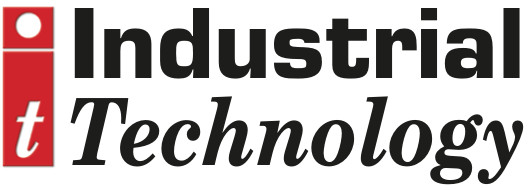
Posted to News on 26th Jun 2017, 00:00
Generating added value from machinery data
For manufacturing companies operating in the 21st century, data is like crude oil in a productive oil well. It’s abundant, it’s potentially very valuable, but to release its value, it needs to be refined. We asked the experts at Weidmuller to tell us how.

Today’s industrial machines and systems generate a huge range of data, covering temperature, pressure, energy consumption, vibration and much more. The values are constantly measured by sensors, monitored and fed back to the control system. The volume of data is massive and increasing all the time. The big challenge, therefore, is to filter out only the most important data and evaluate it using intelligent and efficient methods of data analysis.
The objective is to alert machine and plant operators to potential problems so that they can react quickly and proactively. Industrial analytics is the name that’s been adopted for the data filtering process. When it’s well implemented, it makes production processes even more efficient and prevents unplanned machine downtime. Put simply, industrial analytics lifts production efficiency and performance to the next level. The best industrial analytics solutions are flexible and scalable. They comprise interrelated hardware and software, a characteristic that clearly differentiates them from less capable solutions that are purely based on software.
Many industrialists are surprised to learn that, in most cases, existing machine and production facilities already provide sufficient data for industrial analytics purposes; additional sensors are not required. The engineers implementing the analytics system simply start with all the available process and machine data, from which the key characteristics of the machine’s behaviour can be learned.
The mass of available data is filtered and only that which is actually required for an understanding of the machine is given further consideration. An application-specific analytics engine is then configured to suit the type of machine. This best of these analytic engines feature software that can monitor and predict the behaviour of the machine, and are sometimes called ‘advanced analytics’ engines. They are not just about analysing historical data, but also about making predictions based on this data. The predictions are based on sound mathematical and statistical processes that accurately describe machine behaviour. The processes within a machine or system may well be complex – but with the appropriate tools they can be predicted without need for the services of a clairvoyant!
In configuring advanced analytics, the focus is firmly on the machine users, as their know-how is indispensable. The analytical engine may well be able to predict a fault with a certain probability, but it can only do so if it has been properly configured. And only machine users can assess whether or not the analytical engine should be told to classify a particular anomaly as a critical fault.
A big advantage of advanced analytics is that it allows downtime to be minimised or even avoided through predictive maintenance. This principally affects machine users, but it is also a big benefit for machine builders, as it allows them to establish a completely new relationship with their customers – the machine users. A new, data-driven business model can be put in place, as is illustrated by the following example. Today, if a machine breaks down, the user needs to call the manufacturer to send out a service engineer. This relationship will be reversed in future. The machine will routinely send data to the machinery manufacturer, who will analyse it and, on the basis of the analysis, proactively contact the user to warn of current problems or imminent faults.
In fact, individually designed remote maintenance solutions based on web-based remote access services are already offering machinery and plant engineering companies the tools they need to provide tailored maintenance services, covering the entire life cycle of a machine or system. A further big benefit is that machinery and plant-engineering companies will in future be able to fine-tune the development of their machine and plant models because they know exactly how their machines are used and behave.
There is no shortage of companies offering industrial analytics solutions, but if end users are to reap the maximum rewards and benefits from such implementations, they need to choose their partners in this new and fast developing field with care. It is important that prospective partners should have proven in-depth application experience that will allow them to develop and provide specific analytics functions for machinery and plant engineering. In particular, the systems offered should provide predictions that do not relate simply to individual components, but summarise all the available information to give a comprehensive overview of the machine. Partners must be able to provide expert advice and support as well as hardware and software that can be accurately tailored to the user’s individual requirements.
The analytics engine being offered should support cloud technologies because, even if such support is not a current requirement, it is certain to be needed in the future. What the topology ultimately looks like must be decided in close dialogue with the user, and the overall aspiration should not be to shoehorn the users requirements into a standard package, but always to provide a customised, flexible and scalable overall solution.
If these guidelines are followed, companies adopting industrial analytics and, in particular, advanced analytics will reap big rewards, often for surprisingly little outlay and effort. The hardware, software and knowhow needed to implement systems that refine the crude oil of machine and process data to yield invaluable information are available right now. And, as has already been mentioned, most machines already have the sensors in place to produce data to feed the refining process. Failing to exploit the full potential for added value that this data offers is akin to discarding a valuable resource, which is surely something that no business today can afford to do.
Klippon House, Centurion Court Office Park
Meridian East, Meridian Business Park
LE19 1TP
UNITED KINGDOM
+44(0)116 282 3470






